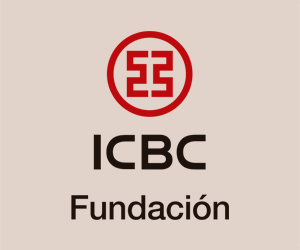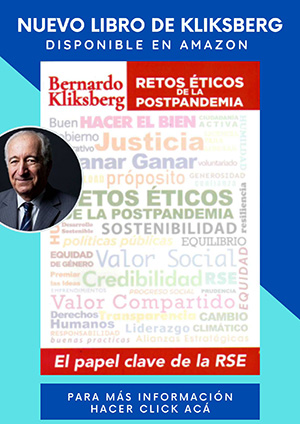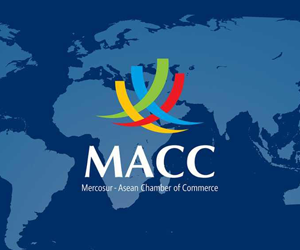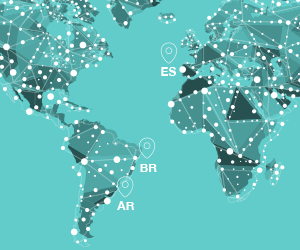UE: Rusia y Argentina los países con más barreras comerciales
* Comisión Europea: informe sobre barreras al comercio
* OMC: Brasil/USA
* Brasil: STF aplica acuerdo de admisión de títulos universitarios para el ejercicio académico en los países del bloque
* Argentina: Suspensión de normas sobre libre circulación de mercaderías (juguetes) por alegación del previo incumplimiento por Brasil.
UE: RUSIA Y ARGENTINA LOS PAÍSES CON MÁS BARRERAS COMERCIALES. COMISIÓN EUROPEA: INFORME SOBRE BARRERAS AL COMERCIO
Fifth report on potentially trade restrictive measures in the context of the global economic crisis, for the 133 Committee, 06/11/09
Fuente: http://ec.europa.eu/trade/index_en.htm
Comentario: «El informe de la Comisión Europea que coloca a Rusia y Argentina como
los países que más barreras al comercio internacional luego del inicio de la crisis financiera internacional.
Texto íntegro en http://trade.ec.europa.eu/doclib/docs/2009/november/tradoc_145270.pdf
Sigue el comunicado de prensa que antecede a dicho informe, http://trade.ec.europa.eu/doclib/press/index.cfm?id=485:
Press release
Market Access Brussels, 6 November 2009
Commission monitoring report on protectionist measures taken by key trading partners: worst-case scenario avoided
ACCORDING TO A NEW MONITORING REPORT PUBLISHED BY THE EUROPEAN COMMISSION, THE EUROPEAN Union’s major trade partners have taken more than 220 potentially trade restrictive measures between October 2008 and October 2009. Measures range from classical trade barriers such as import bans or tariff increases to more sophisticated measures such as "buy national" policies. Classical barriers alone potentially affect roughly 5% of EU exports. In the report, the European Commission calls for continued openness and engagement at a time of economic turmoil.
EU Trade Commissioner Catherine Ashton said: "This report underlines that we need to remain vigilant of protectionist pressures around the world. Even if there are cases of protectionism, the worst-case scenario of a protectionist downward spiral has been avoided. The EU for its part remains committed to its G20 pledge to refrain from protectionist measures and will continue to make the case for open markets, in the world trading system and in our bilateral relations".
This monitoring and reporting exercise is part of a wider effort to keep markets open and trade flowing, which is becoming a key factor driving global recovery. The report finds that the current world trade system has passed one of the most serious stress tests in its entire history. However, it also warns that persistent high unemployment and budget deficits could become a source of new protectionist pressures.
Background
At the Washington Summit in November 2008, the G20 committed to a self-imposed standstill in terms of new barriers to investment or to trade in goods and services, new export restrictions or WTO inconsistent measures to stimulate exports. The London summit in April 2009 reinforced this commitment, notably by providing an explicit
mandate to the WTO to monitor and to report publicly on the evolution of the situation on a quarterly basis.
The EU is firmly committed to this pledge. In order to underpin this commitment the European Commission has been monitoring potentially trade restrictive measures from among its forty main trading partners since the outbreak of the crisis. The European Commission's reporting complements the monitoring exercise done by the WTO.
The main conclusions of the new EU report are as follows:
While global trade has started to stabilise since the summer, trade volumes in August 2009 were still 18% below their peak in April 2008. But it appears that the sharp drop in world trade was above all a reaction to the financial crisis and not driven by trade policy initiatives.
This being said, 223 potentially trade restrictive measures have been reported between October 2008 and October 2009.
The use of classical border measures such as import bans or tariffs in response to the crisis has been clearly contained because of existing WTO disciplines. This being said, classical border measures potentially still affect 5,2% of EU exports.
At the same time, other types of "behind-the-border" trade restrictions have multiplied in the areas where WTO rules are less stringent, such as government procurement.
On balance, a protectionist worst-case scenario has been avoided as the measures taken so far are rather limited in scope. This is partially the result of the firm commitment at the level of G20.
There is a risk that certain measures will remain in place as the crisis retreats, in particular for countries that stay outside the WTO framework. Moreover the risk of a domino effect cannot be discarded.
In view of these risks, the EU will continue to contribute actively to the global monitoring exercise with a view to keeping markets open».
OMC: BRASIL/USA
Órgano de Solución de Diferencias – OMC (DS267): sanciones
Fuente: http://www.wto.org
Comentario: «[texto íntegro]
EL OSD AUTORIZA AL BRASIL A ADOPTAR CONTRAMEDIDAS EN EL ASUNTO DEL “ALGODÓN” Y ESTABLECE GRUPOS ESPECIALES EN LOS ASUNTOS RELATIVOS A LA CARNE DE AVES DE CORRAL Y A LAS PRESCRIPCIONES EN MATERIA DE “EPO”
En la reunión celebrada el 19 de noviembre de 2009, el Órgano de Solución de Diferencias (OSD) concedió autorización al Brasil para imponer contramedidas a los Estados Unidos en el asunto del “algodón” (DS267), y estableció un Grupo Especial único para examinar las reclamaciones presentadas por el Canadá (DS384) y México (DS386) en relación con las prescripciones en materia de etiquetado indicativo del país de origen (EPO), así como un Grupo Especial para examinar la reclamación presentada por los Estados Unidos en relación con las medidas impuestas por las CE a las importaciones de carne de aves de corral (DS389).
Resumen de la reunión: http://www.wto.org/spanish/news_s/news09_s/dsb_19nov09_s.htm (de momento sólo en inglés)
Más información sobre Brasil: http://www.wto.org/spanish/thewto_s/countries_s/brazil_s.htm
Más información sobre los Estados Unidos de América: http://www.wto.org/spanish/thewto_s/countries_s/usa_s.htm» .
BRASIL: SUPREMO TRIBUNAL FEDERAL APLICA ACUERDO DE ADMISIÓN DE TÍTULOS UNIVERSITARIOS PARA EL EJERCICIO EN LOS ESTADOS PARTES
Aplicación del Derecho del MERCOSUR por los tribunales de Brasil
Supremo Tribunal Federal
Acuerdo de Admisión de Títulos y Grados Universitarios para el Ejercicio de Actividades Académicas en los Estados Partes del MERCOSUR, aprobado por Decisión Nº 04/99 del Consejo del Mercado Común
STF, RE 603.649, 09/11/09
Fuente: Diário Judicial eletrônico Nº 218, 20/11/09, http://www.stf.jus.br
Comentario: «Sumario [ementa] y datos del fallo :
Recurso extraordinário. Administrativo. Carreira de magistério universitário. Controvérsia sobre a necessidade de revalidação de diploma estrangeiro. Julgado recorrido fundamentado em legislação infraconstitucional: ofensa constitucional indireta. Recurso ao qual se nega seguimento.
RECURSO EXTRAORDINÁRIO 603.649 (802)
ORIGEM : AC - 200371010047894 - TRIBUNAL REGIONAL FEDERAL
PROCED.: RIO GRANDE DO SUL
RELATORA: MIN. CÁRMEN LÚCIA
RECTE.(S): GIL BARLEM MARTINS
RECTE.(S): REGINA CECERE VIANNA
RECTE.(S): MIGUEL ANTÔNIO SILVEIRA RAMOS
ADV.(A/S): EVERTON PEREIRA DE MATTOS
RECTE.(S): FUNDAÇÃO UNIVERSIDADE FEDERAL DO RIO GRANDE - FURG
PROC.(A/S)(ES) :PROCURADOR-GERAL FEDERAL
RECDO.(A/S) :MINISTÉRIO PÚBLICO FEDERAL
PROC.(A/S)(ES) :PROCURADOR-GERAL DA REPÚBLICA».
ARGENTINA: DERECHO DEL MERCOSUR – RECIPROCIDAD
Derecho del MERCOSUR – reciprocidad – suspensión de normas sobre libre circulación de mercaderías (juguetes) por alegación del previo incumplimiento por Brasil
Secretaría de Comercio Interior, Resolución 894/2009, Suspéndense los efectos de las Disposiciones Nº 300/00 y 506/00 en relación a la certificación de requisitos de seguridad de juguetes, 18/11/09, Boletín Oficial 23/11/09
Fuente: http://infoleg.mecon.gov.ar
Comentario: «Por Resolución Nº 894/2009, la Secretaría de Comercio Interior decidió suspender la aplicación de las Disposiciones Nº 300/00 y 506/00, las cuales validan sendos memorándum de entendimientos sobre evaluación de la conformidad en materia de certificación de requisitos de seguridad de juguetes, suscriptos entre Argentina y Brasil. La fundamentación giró en torno a la queja de la Argentina, hecha valer desde el año 2007, frente a la modificación unilateral por Brasil de una norma del MERCOSUR, a saber la Resolución Nº 23704 del Grupo Mercado Común, “Reglamento Técnico MERCOSUR sobre Seguridad en Juguetes (Derogación de la Res. GMC Nº 54/92)”. La República Argentina ha presentado en la Comisión de Comercio del MERCOSUR una consulta al respecto, estando el expediente aún en trámite. Es oportuno recordar que el Tribunal del MERCOSUR (Laudo IXº - lanas, Argentina/Uruguay) ha sostenido, enfáticamente, que el derecho del MERCOSUR, dada su naturaleza, prohíbe cualquier actitud de querer extrapolar del derecho civil el instituto de la non adimpleti contractus, o excepción de cumplimiento previo por la otra parte, como argumento para violar el derecho del MERCOSUR. En dicha oportunidad, el Tribunal – tal como antes lo sostuviéramos doctrinariamente (1) – consideró que el artículo 2 del Tratado de Asunción (reciprocidad de derechos y obligaciones), interpretado a la luz del artículo 38 del POP y del (en esa ocasión vigente) Protocolo de Brasilia (hoy PO) sobre sistema de solución de controversias en el MERCOSUR, debe ser interpretado en el sentido de que, ante un incumplimiento previo por un Estado Parte, el Estado afectado tiene la facultad de llevar el caso al Tribunal del MERCOSUR, pero no – de ninguna manera – ampararse en dicha circunstancias para infringir a su vez la norma regional; y que la posibilidad de aplicar una contramedida (represalia) únicamente está justificada en el supuesto de un incumplimiento de una decisión del Tribunal del MERCOSUR.
(1) PEROTTI, Alejandro D., “El artículo 2 del Tratado de Asunción: ¿existe un derecho a violar el derecho?. Del principio de lealtad comunitaria, el non adimpleti contractus y afines”, Derecho vigente del Mercosur (Luis A. Estoup y Jorge Fernández Reyes, coords.), ed. La Ley, Buenos Aires, Argentina, 2001, págs. 33-60; también publicado en Revista de Comercio Exterior y Aduana Nº 7, 2003, ed. Fundación de Cultura Universitaria, Montevideo, Uruguay, págs. 41-60. Puede verse también, del mismo autor, “Comentario al Noveno laudo del Tribunal Ad Hoc del MERCOSUR”, Revista de Derecho Internacional y del Mercosur Nº 2, 2005, año 9, abril, ed. La Ley, Buenos Aires, Argentina, págs. 39 a 56; también publicado en: Anales de Legislación Paraguaya Nº 4, 2005, año 7, abril, ed. La Ley, Asunción, Paraguay, págs. 1 a 13».
Prof. Dr. Alejandro D. Perotti
Comercio exterior: MERCOSUR, UE, CAN, SICA
adperotti@alaisdepalacios.com.ar- http://www.alaisdepalacios.com.ar/
Universidad Austral - Facultad de Derecho, Buenos Aires
Fifth report on potentially trade restrictive measures in the context of the global economic crisis, for the 133 Committee, 06/11/09
Fuente: http://ec.europa.eu/trade/index_en.htm
Comentario: «El informe de la Comisión Europea que coloca a Rusia y Argentina como
los países que más barreras al comercio internacional luego del inicio de la crisis financiera internacional.
Texto íntegro en http://trade.ec.europa.eu/doclib/docs/2009/november/tradoc_145270.pdf
Sigue el comunicado de prensa que antecede a dicho informe, http://trade.ec.europa.eu/doclib/press/index.cfm?id=485:
Press release
Market Access Brussels, 6 November 2009
Commission monitoring report on protectionist measures taken by key trading partners: worst-case scenario avoided
ACCORDING TO A NEW MONITORING REPORT PUBLISHED BY THE EUROPEAN COMMISSION, THE EUROPEAN Union’s major trade partners have taken more than 220 potentially trade restrictive measures between October 2008 and October 2009. Measures range from classical trade barriers such as import bans or tariff increases to more sophisticated measures such as "buy national" policies. Classical barriers alone potentially affect roughly 5% of EU exports. In the report, the European Commission calls for continued openness and engagement at a time of economic turmoil.
EU Trade Commissioner Catherine Ashton said: "This report underlines that we need to remain vigilant of protectionist pressures around the world. Even if there are cases of protectionism, the worst-case scenario of a protectionist downward spiral has been avoided. The EU for its part remains committed to its G20 pledge to refrain from protectionist measures and will continue to make the case for open markets, in the world trading system and in our bilateral relations".
This monitoring and reporting exercise is part of a wider effort to keep markets open and trade flowing, which is becoming a key factor driving global recovery. The report finds that the current world trade system has passed one of the most serious stress tests in its entire history. However, it also warns that persistent high unemployment and budget deficits could become a source of new protectionist pressures.
Background
At the Washington Summit in November 2008, the G20 committed to a self-imposed standstill in terms of new barriers to investment or to trade in goods and services, new export restrictions or WTO inconsistent measures to stimulate exports. The London summit in April 2009 reinforced this commitment, notably by providing an explicit
mandate to the WTO to monitor and to report publicly on the evolution of the situation on a quarterly basis.
The EU is firmly committed to this pledge. In order to underpin this commitment the European Commission has been monitoring potentially trade restrictive measures from among its forty main trading partners since the outbreak of the crisis. The European Commission's reporting complements the monitoring exercise done by the WTO.
The main conclusions of the new EU report are as follows:
While global trade has started to stabilise since the summer, trade volumes in August 2009 were still 18% below their peak in April 2008. But it appears that the sharp drop in world trade was above all a reaction to the financial crisis and not driven by trade policy initiatives.
This being said, 223 potentially trade restrictive measures have been reported between October 2008 and October 2009.
The use of classical border measures such as import bans or tariffs in response to the crisis has been clearly contained because of existing WTO disciplines. This being said, classical border measures potentially still affect 5,2% of EU exports.
At the same time, other types of "behind-the-border" trade restrictions have multiplied in the areas where WTO rules are less stringent, such as government procurement.
On balance, a protectionist worst-case scenario has been avoided as the measures taken so far are rather limited in scope. This is partially the result of the firm commitment at the level of G20.
There is a risk that certain measures will remain in place as the crisis retreats, in particular for countries that stay outside the WTO framework. Moreover the risk of a domino effect cannot be discarded.
In view of these risks, the EU will continue to contribute actively to the global monitoring exercise with a view to keeping markets open».
OMC: BRASIL/USA
Órgano de Solución de Diferencias – OMC (DS267): sanciones
Fuente: http://www.wto.org
Comentario: «[texto íntegro]
EL OSD AUTORIZA AL BRASIL A ADOPTAR CONTRAMEDIDAS EN EL ASUNTO DEL “ALGODÓN” Y ESTABLECE GRUPOS ESPECIALES EN LOS ASUNTOS RELATIVOS A LA CARNE DE AVES DE CORRAL Y A LAS PRESCRIPCIONES EN MATERIA DE “EPO”
En la reunión celebrada el 19 de noviembre de 2009, el Órgano de Solución de Diferencias (OSD) concedió autorización al Brasil para imponer contramedidas a los Estados Unidos en el asunto del “algodón” (DS267), y estableció un Grupo Especial único para examinar las reclamaciones presentadas por el Canadá (DS384) y México (DS386) en relación con las prescripciones en materia de etiquetado indicativo del país de origen (EPO), así como un Grupo Especial para examinar la reclamación presentada por los Estados Unidos en relación con las medidas impuestas por las CE a las importaciones de carne de aves de corral (DS389).
Resumen de la reunión: http://www.wto.org/spanish/news_s/news09_s/dsb_19nov09_s.htm (de momento sólo en inglés)
Más información sobre Brasil: http://www.wto.org/spanish/thewto_s/countries_s/brazil_s.htm
Más información sobre los Estados Unidos de América: http://www.wto.org/spanish/thewto_s/countries_s/usa_s.htm» .
BRASIL: SUPREMO TRIBUNAL FEDERAL APLICA ACUERDO DE ADMISIÓN DE TÍTULOS UNIVERSITARIOS PARA EL EJERCICIO EN LOS ESTADOS PARTES
Aplicación del Derecho del MERCOSUR por los tribunales de Brasil
Supremo Tribunal Federal
Acuerdo de Admisión de Títulos y Grados Universitarios para el Ejercicio de Actividades Académicas en los Estados Partes del MERCOSUR, aprobado por Decisión Nº 04/99 del Consejo del Mercado Común
STF, RE 603.649, 09/11/09
Fuente: Diário Judicial eletrônico Nº 218, 20/11/09, http://www.stf.jus.br
Comentario: «Sumario [ementa] y datos del fallo :
Recurso extraordinário. Administrativo. Carreira de magistério universitário. Controvérsia sobre a necessidade de revalidação de diploma estrangeiro. Julgado recorrido fundamentado em legislação infraconstitucional: ofensa constitucional indireta. Recurso ao qual se nega seguimento.
RECURSO EXTRAORDINÁRIO 603.649 (802)
ORIGEM : AC - 200371010047894 - TRIBUNAL REGIONAL FEDERAL
PROCED.: RIO GRANDE DO SUL
RELATORA: MIN. CÁRMEN LÚCIA
RECTE.(S): GIL BARLEM MARTINS
RECTE.(S): REGINA CECERE VIANNA
RECTE.(S): MIGUEL ANTÔNIO SILVEIRA RAMOS
ADV.(A/S): EVERTON PEREIRA DE MATTOS
RECTE.(S): FUNDAÇÃO UNIVERSIDADE FEDERAL DO RIO GRANDE - FURG
PROC.(A/S)(ES) :PROCURADOR-GERAL FEDERAL
RECDO.(A/S) :MINISTÉRIO PÚBLICO FEDERAL
PROC.(A/S)(ES) :PROCURADOR-GERAL DA REPÚBLICA».
ARGENTINA: DERECHO DEL MERCOSUR – RECIPROCIDAD
Derecho del MERCOSUR – reciprocidad – suspensión de normas sobre libre circulación de mercaderías (juguetes) por alegación del previo incumplimiento por Brasil
Secretaría de Comercio Interior, Resolución 894/2009, Suspéndense los efectos de las Disposiciones Nº 300/00 y 506/00 en relación a la certificación de requisitos de seguridad de juguetes, 18/11/09, Boletín Oficial 23/11/09
Fuente: http://infoleg.mecon.gov.ar
Comentario: «Por Resolución Nº 894/2009, la Secretaría de Comercio Interior decidió suspender la aplicación de las Disposiciones Nº 300/00 y 506/00, las cuales validan sendos memorándum de entendimientos sobre evaluación de la conformidad en materia de certificación de requisitos de seguridad de juguetes, suscriptos entre Argentina y Brasil. La fundamentación giró en torno a la queja de la Argentina, hecha valer desde el año 2007, frente a la modificación unilateral por Brasil de una norma del MERCOSUR, a saber la Resolución Nº 23704 del Grupo Mercado Común, “Reglamento Técnico MERCOSUR sobre Seguridad en Juguetes (Derogación de la Res. GMC Nº 54/92)”. La República Argentina ha presentado en la Comisión de Comercio del MERCOSUR una consulta al respecto, estando el expediente aún en trámite. Es oportuno recordar que el Tribunal del MERCOSUR (Laudo IXº - lanas, Argentina/Uruguay) ha sostenido, enfáticamente, que el derecho del MERCOSUR, dada su naturaleza, prohíbe cualquier actitud de querer extrapolar del derecho civil el instituto de la non adimpleti contractus, o excepción de cumplimiento previo por la otra parte, como argumento para violar el derecho del MERCOSUR. En dicha oportunidad, el Tribunal – tal como antes lo sostuviéramos doctrinariamente (1) – consideró que el artículo 2 del Tratado de Asunción (reciprocidad de derechos y obligaciones), interpretado a la luz del artículo 38 del POP y del (en esa ocasión vigente) Protocolo de Brasilia (hoy PO) sobre sistema de solución de controversias en el MERCOSUR, debe ser interpretado en el sentido de que, ante un incumplimiento previo por un Estado Parte, el Estado afectado tiene la facultad de llevar el caso al Tribunal del MERCOSUR, pero no – de ninguna manera – ampararse en dicha circunstancias para infringir a su vez la norma regional; y que la posibilidad de aplicar una contramedida (represalia) únicamente está justificada en el supuesto de un incumplimiento de una decisión del Tribunal del MERCOSUR.
(1) PEROTTI, Alejandro D., “El artículo 2 del Tratado de Asunción: ¿existe un derecho a violar el derecho?. Del principio de lealtad comunitaria, el non adimpleti contractus y afines”, Derecho vigente del Mercosur (Luis A. Estoup y Jorge Fernández Reyes, coords.), ed. La Ley, Buenos Aires, Argentina, 2001, págs. 33-60; también publicado en Revista de Comercio Exterior y Aduana Nº 7, 2003, ed. Fundación de Cultura Universitaria, Montevideo, Uruguay, págs. 41-60. Puede verse también, del mismo autor, “Comentario al Noveno laudo del Tribunal Ad Hoc del MERCOSUR”, Revista de Derecho Internacional y del Mercosur Nº 2, 2005, año 9, abril, ed. La Ley, Buenos Aires, Argentina, págs. 39 a 56; también publicado en: Anales de Legislación Paraguaya Nº 4, 2005, año 7, abril, ed. La Ley, Asunción, Paraguay, págs. 1 a 13».
Prof. Dr. Alejandro D. Perotti
Comercio exterior: MERCOSUR, UE, CAN, SICA
adperotti@alaisdepalacios.com.ar- http://www.alaisdepalacios.com.ar/
Universidad Austral - Facultad de Derecho, Buenos Aires
mercosurabc





